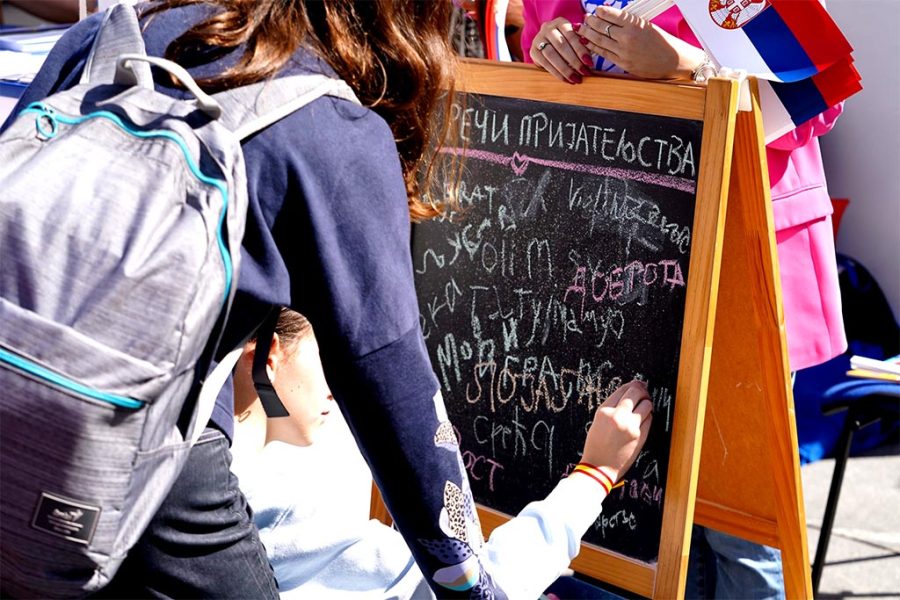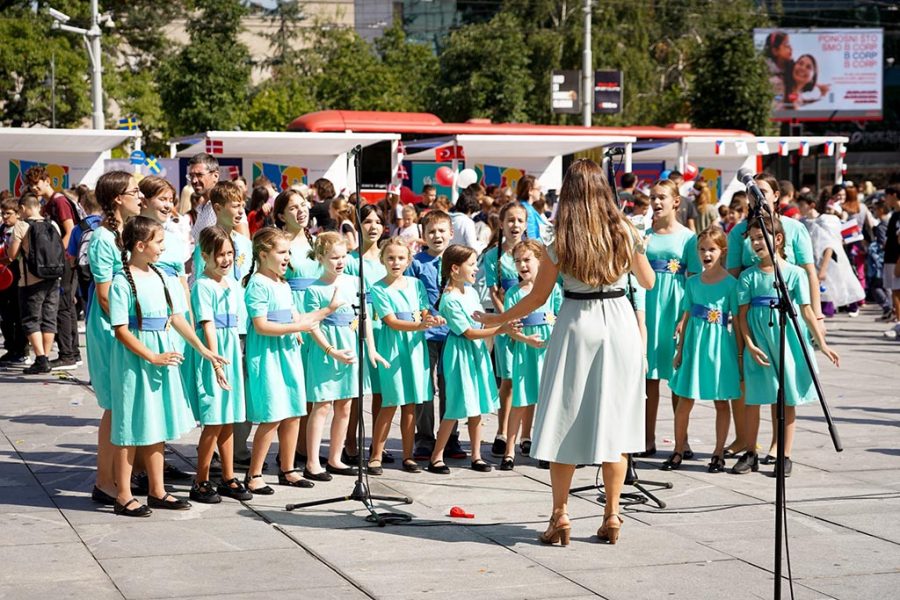In celebration of the European Day of Languages, marked annually since 2001 across all European countries, the Children’s Cultural Centre Belgrade, in collaboration with the Delegation of the European Union in Serbia, the Council of Europe, the Ministry for European Integration, the Network of European Union National Institutes for Culture (EUNIC Cluster), and the City Administration of Belgrade, hosted a programme at Republic Square in Belgrade, aimed at promoting multilingualism across Europe and language learning for all ages and backgrounds.
Young visitors had the opportunity to explore various cultures and languages of different European countries at the embassy stands and cultural centres, indulge in delicacies, participate in a quiz to test their knowledge, and familiarise themselves with the work of the Creative Europe Desk Serbia, EU Delegation in Serbia, and the Ministry for European Integration.

Nadia Ćuk, Deputy Head of Mission of the Council of Europe, inaugurated the event, noting the significance of appreciating diversity and the linguistic variety in Europe, where 280 different languages are spoken, and 24 are official languages of the European Union.
“It is my pleasure to open the European Day of Languages, which we celebrate every year on September 26th, since 2001, together with the European Commission. Linguistic diversity is our cultural heritage; it helps us appreciate all diversities and understand that diversity is our strength,” said Ćuk. She added that 700 million Europeans across 46 member states of the Council of Europe are encouraged to learn various languages, regardless of age: “We at the Council of Europe firmly believe that linguistic diversity is a tool that can achieve greater intercultural understanding and is a key element in our rich cultural heritage.”

Besides the stalls, performances were organised, including a choir performance by the Children’s Cultural Centre Belgrade, a dance lesson by the Belgrade Dance Centre (BIC), and performances prepared by students from Belgrade schools.
In addition to the Children’s Cultural Centre Belgrade, the main organiser of the event, this year’s participants included embassies of Finland, the Kingdom of Denmark, Slovenia, Sweden, the Republic of Portugal, Ukraine, the Kingdom of Belgium, the Kingdom of the Netherlands, the Kingdom of Spain, Austria, and the Republic of Poland, as well as the Italian Cultural Institute, French Institute, Goethe Institute, Austrian Institute, Czech Centre Belgrade, Yunus Emre Enstitüsü – Turkish Cultural Centre Belgrade, the Association of Single Parents and Families of Children with Disabilities “Blue Shell”, Delegation of the European Union, Council of Europe, Ministry for European Integration of the Republic of Serbia, and the Creative Europe Desk Serbia.
Photo: europa.rs